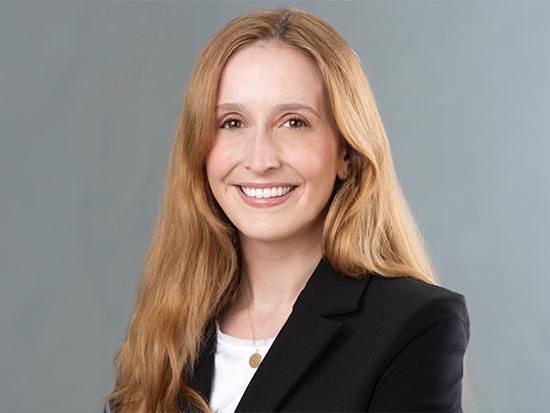
Davies also received first place overall for an oral presentation at the UAB Heersink School of Medicine Dale J. Benos Medical Student Research Day, which celebrates the research accomplishments of medical students and provides them with the opportunity to present their projects to fellow students and faculty.
ENRICH Week is an annual healthcare education conference featuring a keynote speaker, a poster session and workshops designed to foster skills and showcase innovative research.
Davies, a member of the University of Alabama at Birmingham Marnix E. Heersink School of Medicine class of 2027, was one of only two presenters across all categories to receive perfect scores from the judges.
Originally from Birmingham, Alabama, Davies boasts an impressive academic background. Holding Master of Science degrees in both anatomical sciences and biomedical and health sciences, Davies has leveraged her extensive knowledge to enhance the fields of medical education and neuroscience.
Tools that transform
One of Davies' most noteworthy developments is the Virtual Interactive Brain Atlas for Pathology (VIBA-PATH), a tool designed to integrate essential pathology study resources into neuroscience curricula. This tool represents just one branch of a broader project, made up of the Virtual Interactive Brain Atlas (VIBA) and the Virtual Anatomy Lab (VAL).
Davies' initial venture, VIBA, was developed in collaboration with Associate Professor of Cell, Developmental and Integrative Biology Inga Kadisha, Ph.D., as a research project for her master’s program in 2022. VIBA is a tool which includes more than 1,500 interactive PowerPoint slides and 500 practice problems to support neuroanatomy studies. With the help of Kristina Visscher, Ph.D., and Pinar Demirayak, Ph.D., in the Department of Neurobiology, an MRI component has now been added as part of the tool.
Davies' ambition didn’t stop there and in July 2023, the VAL website launched as an educational platform available to all UAB students, faculty and staff with a BlazerID. The SharePoint site connects VIBA with an array of resources, from textbooks and study guides to podcasts and YouTube videos.
With the success of VIBA and VAL under her belt, Davies became interested in creating a tool specifically for pathology. Collaborating with a team of specialists across multiple disciplines, she developed VIBA-PATH, which integrates a variety of de-identified diagnostic images with interactive pathology imaging and board-style questions. Developing the tool in only six months, Davies worked with Department of Neurosurgery Professor Brandon Rocque, M.D., MS, PGY6 Resident Matthew Parr, M.D., PGY2 Resident Jordan George, M.D., and others across UAB, including Fabricio Goncalves, M.D., Shruti Agnihotri, M.D., Rong Li, M.D., and Katie Day, M.S.
Into the future
In the fall of 2024, Davies’ tool was incorporated into neuroscience education modules at the Heersink School of Medicine.
Davies' innovative mindset has not gone unnoticed. Anastasia Smith, DrPH, MPH, clinical research manager in the Department of Neurosurgery Division of Pediatric Neurosurgery, praised her for her exceptional leadership and patient-centered approach. "Caroline has shown a genuine dedication to high-quality research and she has become a tremendous asset to our team. She is an exceptional medical student who has great leadership skills both in the classroom and in research," remarked Smith. "Most importantly she keeps patients and their needs at the center of all of her work."
With support from the Bill L. Harbert Institute for Innovation and Entrepreneurship, Davies has secured the copyrights for VIBA and is in the process of doing the same for VIBA-PATH. She also plans to expand these tools to include more organ systems and collaborate with students specializing in other fields like microbiology, cardiovascular and dermatology.
Reflecting on her experiences, Davies shared, “Working on the VIBA tool ultimately sparked my interest in pursuing a career in academic neurosurgery. I’m incredibly grateful for the support of my mentors and for the opportunity to conduct research with the pediatric neurosurgery team this summer, which has been an amazing experience.”
Davies' achievement at ENRICH Week is just the beginning of what promises to be a transformative career in medical education and academic neurosurgery.
“I’m excited to see what future tools we can create to help more students and inspire their interest in neuroscience," said Davies.